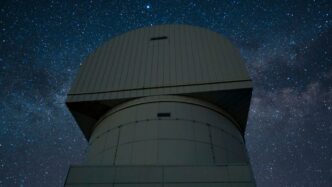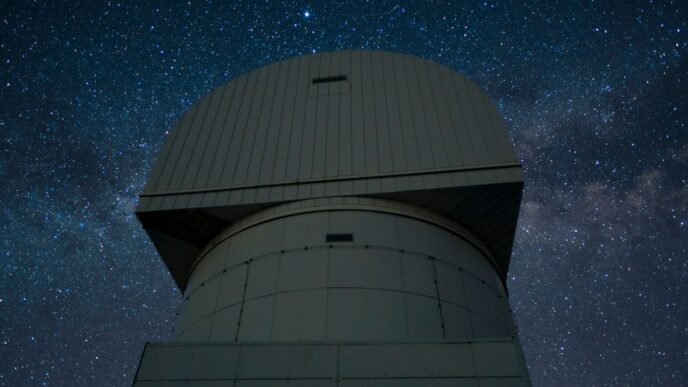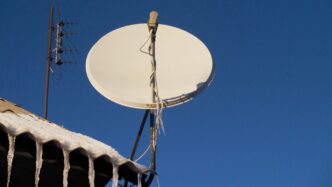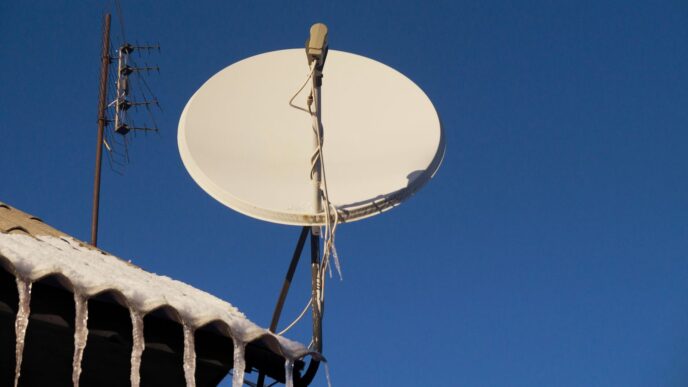Understanding Recent SpaceX Fines
So, it looks like SpaceX is in hot water with the FAA again. The Federal Aviation Administration has proposed some pretty hefty fines, totaling over $633,000, for a couple of incidents that happened during 2023 launches. These penalties stem from alleged violations of the terms laid out in SpaceX’s launch licenses. It’s not the first time the FAA has come down on SpaceX for this kind of thing, but the amounts this time around are definitely significant.
Let’s break down what these fines are all about:
- Falcon 9 Launch Violations: For a Falcon 9 launch back in June 2023, carrying a broadband satellite, SpaceX is facing a proposed $350,000 fine. The FAA says SpaceX went ahead and used a new launch control center and skipped a pre-launch check without getting the necessary license modifications approved in time. SpaceX had requested these changes, but the FAA couldn’t approve them before the launch date.
- Falcon Heavy Launch Violations: Then, there’s a separate proposed fine of $283,009 for a Falcon Heavy launch in July 2023, which also carried a broadband satellite. This time, the issue was with a new tank farm for fuel. SpaceX apparently requested to use it just days before the launch, and again, the FAA couldn’t get the license updated in time. SpaceX proceeded with using the new tank farm anyway.
It’s worth noting that both of these launches were successful. However, the FAA maintains that sticking to the terms of the license is important for safety and oversight. SpaceX, on the other hand, has been pretty vocal about their disagreements with the FAA’s approach, with Elon Musk even threatening legal action. It seems like there’s a real clash happening between SpaceX’s rapid development pace and the FAA’s regulatory processes.
Details of FAA Enforcement Actions
The Federal Aviation Administration (FAA) has recently proposed significant fines against SpaceX, stemming from alleged violations of their launch licenses. These actions highlight the FAA’s role in overseeing commercial space transportation and ensuring compliance with safety and procedural requirements. The penalties are tied to specific incidents involving SpaceX’s well-known launch vehicles.
Violations Related to Falcon 9 and Falcon Heavy Launches
SpaceX faced proposed fines totaling $633,009 for issues that arose during two separate launches in 2023. One incident involved the June 2023 launch of the Falcon 9 carrying the Satria-1 satellite. The FAA cited SpaceX for using a new launch control center at their "Hangar X" facility at Kennedy Space Center and for skipping a pre-launch poll of controllers, which were changes requested but not fully approved by the FAA before the launch.
Another set of violations occurred during the July 2023 Falcon Heavy launch of the Jupiter-3 satellite. In this case, SpaceX was penalized for using a new tank farm for RP-1 fuel at Launch Complex 39A. The company had requested a license modification for this change shortly before the launch, but the FAA indicated it could not process the approval in time. Despite this, SpaceX proceeded with using the new facility.
Changes to Launch Control Centers and Tank Farms
The FAA’s enforcement actions specifically address SpaceX’s modifications to its launch infrastructure. For the Falcon 9 launch, the agency pointed to the unauthorized use of a new launch control center. SpaceX had submitted a request for this change in May 2023, but according to the FAA, the agency could not approve it before the scheduled launch date. SpaceX proceeded with the new control center anyway.
Similarly, for the Falcon Heavy launch, the violation centered on the use of a new tank farm for fuel. SpaceX had notified the FAA of this planned change nine days before the launch, seeking a license modification. However, the FAA stated it would not be able to approve the modification in the timeframe available, leading to the penalty when SpaceX used the new tank farm.
Failure to Submit Trajectory Data for Previous Launches
This isn’t the first time SpaceX has faced FAA penalties. In February 2023, the agency proposed a $175,000 fine for a violation related to a Falcon 9 Starlink launch that occurred six months prior. The core issue in that instance was SpaceX’s failure to submit required trajectory data for collision analysis at least seven days before the launch, as stipulated by the terms of their launch license. This prior enforcement action indicates a pattern of procedural compliance issues that the FAA has addressed with the company.
SpaceX’s Response to FAA Penalties
So, SpaceX got hit with some fines from the FAA, and Elon Musk wasn’t exactly thrilled. He’s been pretty vocal about this, even threatening to take the FAA to court.
Musk has claimed that the FAA is overstepping its bounds and that these penalties are politically motivated. He’s made statements suggesting that the agency is harassing SpaceX with these fines for minor issues while letting other companies off the hook. He even pointed to Boeing’s Starliner program, questioning why SpaceX faces penalties when other programs, in his view, have had more significant safety concerns.
SpaceX’s side of the story, as communicated to lawmakers, is that they informed the FAA about changes in advance, and the agency didn’t stop them. They feel the FAA’s process for approving license modifications is too slow. For instance, one fine relates to moving a launch control center before a June 2023 launch. SpaceX says they submitted the change request weeks before, didn’t get a timely response, and then submitted a revised request just days before the launch, believing the change didn’t need approval. The FAA eventually approved the modification months later.
Here’s a breakdown of the proposed fines and the incidents:
- June 2023 Falcon 9 Launch (Satria-1): Proposed fine of $350,000 for using a new launch control center and skipping a pre-launch poll without timely FAA approval.
- July 2023 Falcon Heavy Launch (Jupiter-3): Proposed fine of $283,009 for using a new fuel tank farm without prior license modification approval.
SpaceX has the option to respond to these proposed fines, which includes participating in an informal conference with FAA attorneys or submitting information to explain the situation. However, Musk has indicated a preference for legal action, stating SpaceX will file suit against the FAA for regulatory overreach. Some experts suggest that SpaceX might have better luck addressing these issues directly with the FAA rather than through a lawsuit.
Environmental Protection Agency Penalties
So, it turns out SpaceX isn’t just dealing with the FAA. The Environmental Protection Agency (EPA) has also gotten involved, slapping SpaceX with some fines related to their Starbase facility down in Texas. It’s a bit of a different ballgame than the FAA stuff, focusing more on environmental rules.
Clean Water Act Violations at Starbase Facility
The EPA announced a fine of $148,378 against SpaceX. This penalty is specifically for breaking the Clean Water Act. Apparently, there were issues with wastewater discharges from a launch deluge system on the launch pad. This means water used to cool down the pad during launches, which can pick up all sorts of stuff, was released without the proper permits. It’s a pretty big deal because this water could potentially affect local water sources.
Fines for Unpermitted Wastewater Discharges
This whole wastewater situation is part of the EPA’s settlement with SpaceX. The agency pointed out that these discharges happened without the necessary permits. It’s a reminder that even with all the high-tech rocket stuff, basic environmental regulations still apply. The EPA noted that this settlement came about after discussions with SpaceX, and the public had a chance to comment on it.
Penalties for Liquid Oxygen Spill into Wetlands
On top of the wastewater issue, there was another incident. SpaceX also got dinged for a spill of liquid oxygen that ended up in protected wetlands near the Starbase site. Liquid oxygen itself isn’t usually the main environmental concern, but when it spills and mixes with sensitive ecosystems like wetlands, it can cause problems. This particular penalty highlights the importance of containment and proper handling of all materials, not just the hazardous ones, especially when you’re operating near protected natural areas. It really shows how complex IT and law can be when you mix cutting-edge tech with environmental rules.
FAA’s Role in Space Launch Oversight
The Federal Aviation Administration, or FAA, has a pretty big job when it comes to keeping an eye on all the commercial space launches happening these days. It’s not just about making sure rockets go up; it’s about making sure they do it safely for everyone involved, from the people on the ground to the folks flying in space.
The FAA’s primary mission is to ensure public safety in commercial space transportation. This means they’re responsible for making sure companies like SpaceX follow all the rules and regulations when they get a license to launch. It’s a bit like being a traffic cop for the skies, but way more complicated because, well, rockets.
Here’s a breakdown of what that oversight entails:
- Public Safety: This is the big one. The FAA has to make sure that launches don’t pose a risk to people on the ground, property, or other aircraft. They look at everything from the launch trajectory to the potential impact zones if something goes wrong.
- Launch License Compliance: Companies need a license from the FAA to launch, and that license comes with a whole list of requirements. The FAA checks to see if companies are sticking to those requirements, which can cover things like safety procedures, environmental impact, and even how they handle hazardous materials.
- Investigating Incidents: When something does go wrong, like a launch failure or a violation of regulations, the FAA steps in to investigate. They figure out what happened, why it happened, and what needs to be done to prevent it from happening again. This often leads to proposed fines or other enforcement actions.
It’s a tough balancing act. The space industry is growing super fast, and the FAA is trying to keep up. They need to make sure safety isn’t sacrificed for speed, but they also don’t want to stifle innovation. It’s a constant challenge to update rules and procedures to match the rapid advancements in rocket technology and the increasing number of launches.
Broader Implications for the Space Industry
Debate Over FAA Decision-Making Speed
Look, everyone wants space to move fast, right? SpaceX is pushing for way more launches, like, a lot more. They want to get 25 Starships up this year, which is a huge jump from the four they did last year. But the FAA, they’ve got this office, AST, that’s supposed to keep an eye on all this. The problem is, AST is really stretched thin. They’ve seen a massive increase in launches, like a six-fold jump in just a few years, but their staff and budget haven’t really kept up. So, while SpaceX is trying to speed things up, the FAA’s process, which can take months just to figure out risks and environmental stuff, feels slow to some. It’s like trying to put a traffic cop on a highway that’s suddenly got way more cars.
Calls for Streamlining Launch Regulations
There’s a real push from folks in Congress and the industry to make the FAA’s rules a bit simpler and faster. Some people think the FAA is too cautious, maybe even a bit stuck in its ways from dealing with regular airplanes, which, you know, can’t really afford to have failures. The space industry is still pretty new, and sometimes a failure isn’t the end of the world, as long as nobody gets hurt. So, the idea is to speed things up without messing with safety. It’s a tricky balance, for sure. Some even suggested that the AST office should be its own thing, separate from the FAA, to get more focus and maybe more money.
The Need for Adequate Resources in Space Traffic Management
This whole situation really highlights that the FAA needs more resources, especially for that AST office. They’ve got a lot on their plate – checking out launch risks, making sure rockets don’t mess with regular air traffic, looking at environmental impacts, and even licensing reentries. And with launches happening almost every day now, it’s a lot for their roughly 160 staff members. If they don’t have enough people or money, things could get missed, and that could lead to big problems down the line. Having enough people and money to do the job right is key to keeping space safe as it gets busier. It’s not just about SpaceX; it’s about the whole industry growing and needing proper oversight.
So, What’s the Takeaway?
Look, the FAA is there to make sure space launches are safe for everyone, and that’s a big job. SpaceX, on the other hand, is pushing the limits and wants to move fast. These fines show there’s a bit of a clash between those two things right now. It’s not the first time the FAA has fined SpaceX, and it probably won’t be the last. Whether it’s about launch data or wastewater, the agency says safety is the main concern. SpaceX, though, feels like they’re being held back and even unfairly targeted. It’s a complicated situation, and how it all shakes out could really shape how space travel develops in the coming years. We’ll just have to keep an eye on it.








